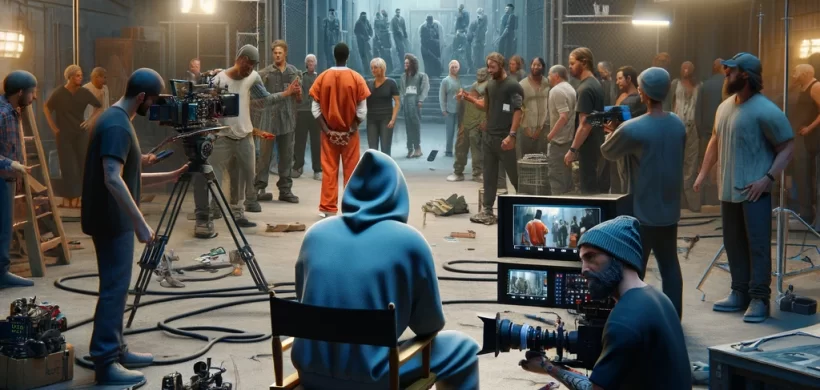
Introduction:
In recent years, a wave of films and television shows has explored the challenges faced by ex-felons attempting to reintegrate into society after serving their sentences. These narratives shed light on the complexities of reentry, offering viewers a glimpse into the struggles and triumphs of individuals navigating life post-incarceration.
Accurate Depictions:
Several films and TV shows have been praised for their authentic portrayal of the reentry experience. “Rectify,” a television series created by Ray McKinnon, has been commended for its nuanced exploration of the emotional and psychological challenges faced by a wrongfully convicted man upon his release. Additionally, the film “Short Term 12,” directed by Destin Daniel Cretton, addresses the struggles of a young adult attempting to overcome a troubled past while working in a foster care facility.
Realistic Challenges:
These productions accurately capture some of the common challenges faced by ex-felons, including difficulty finding employment, strained family relationships, and the stigma associated with a criminal record. The Marshall Project, a non-profit news organization covering criminal justice issues, notes that the job market is often unforgiving for individuals with a criminal history, contributing to high rates of recidivism.
Inaccuracies and Sensationalism:
While many films and TV shows strive for authenticity, some tend to sensationalize or oversimplify the reentry experience. The American Psychological Association (APA) cautions against the portrayal of ex-felons as inherently dangerous or irredeemable, emphasizing the need for narratives that highlight the potential for rehabilitation and successful reintegration.
Overlooking Diversity of Experiences:
One common criticism is the tendency to present a one-size-fits-all narrative, overlooking the diverse experiences of individuals post-incarceration. The Prison Policy Initiative emphasizes the importance of recognizing that the challenges faced by ex-felons are influenced by factors such as race, gender, and socio-economic background. Films and shows that acknowledge this diversity contribute to a more accurate and nuanced understanding of the reentry process.
Conclusion:
While films and television shows provide a platform to raise awareness about the challenges of reentry, it is crucial to approach these narratives critically. Accurate portrayals that delve into the complexities of the experience contribute to a broader conversation about criminal justice reform. By avoiding stereotypes and showcasing the diversity of reentry journeys, media can play a significant role in shaping public perceptions and fostering empathy towards individuals seeking to rebuild their lives after incarceration.

